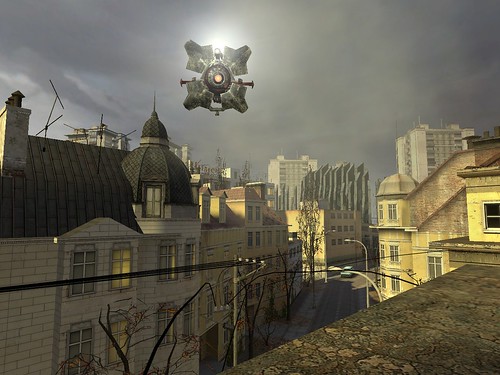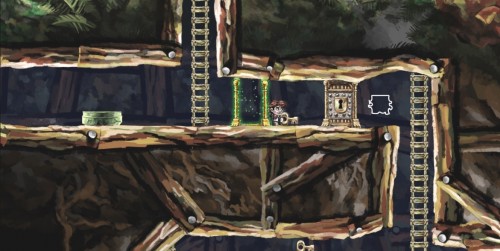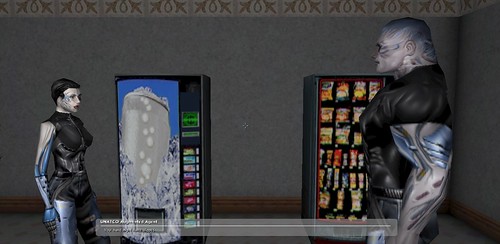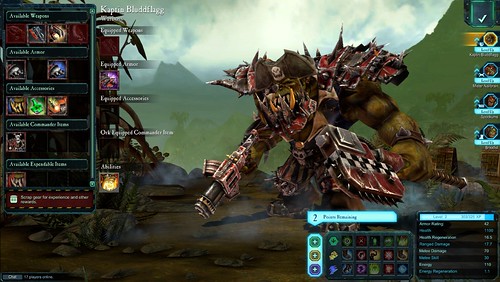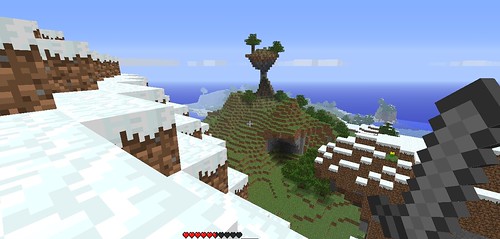TOM FRANCIS
REGRETS THIS ALREADY
Hello! I'm Tom. I'm a game designer, writer, and programmer on Gunpoint, Heat Signature, and Tactical Breach Wizards. Here's some more info on all the games I've worked on, here are the videos I make on YouTube, and here are two short stories I wrote for the Machine of Death collections.
Theme
By me. Uses Adaptive Images by Matt Wilcox.
Search
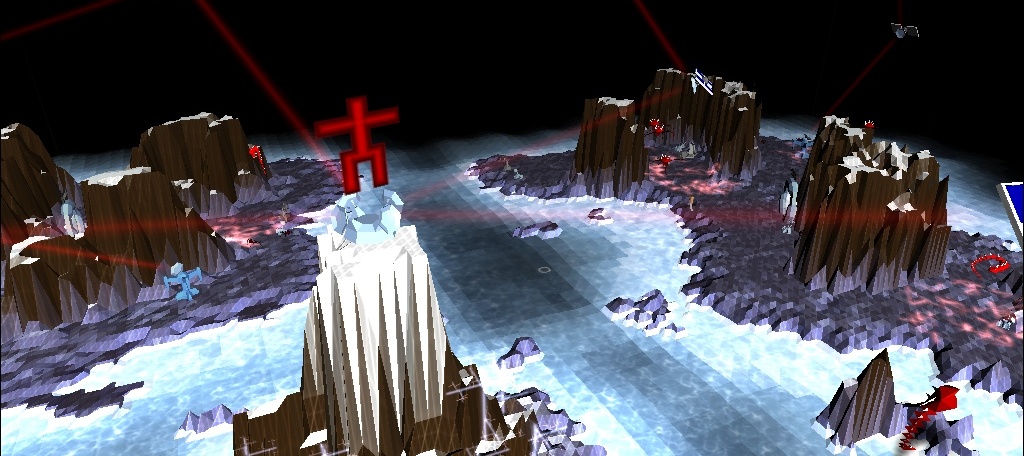
What Makes Games Good
A few times lately, non-gaming friends and relatives have asked me: what’s the appeal of games? Good question! The people who don’t ask it seem to assume it’s something terrible, like bloodlust, or it’s some unknowable new drug they will never understand.
It’s also a useful one for anyone involved with games to ask. It’s one game critics like me should be able to answer reflexively. It’s one developers should answer before they start making something. And it’s one gamers should probably think about before writing a one-star Amazon review saying ‘lol ass’.
I’m sad to say that on the press side of things, we haven’t really got anywhere. Half of us apparently think games meaningfully break down into “Presentation, Graphics, Sound, Gameplay, and Lasting Appeal”. And the other half believe they’re unquantifiable pixie dust and anyone who wants even the faintest idea of their merits should have to read 3,000 words of waffle.
The former is confusing a game’s component parts with what the whole achieves. The latter is just giving up. It’s not that games can be captured in a few metrics, it’s that they still can’t in 3,000 words. So instead of abandoning analysis, let’s just be smarter about where analysis stops.
It can’t stop at words like ‘gameplay’, because those aren’t useful: tell me a game has good gameplay, and all I really know is that you like it. Are your actions in it satisfying on some tactile level? If so, great. We don’t really need to know why they’re satisfying, just to say ‘it feels good’ is far more specific and useful than what we had before.
That’s what I mean by being smarter about where analysis stops. Keep asking “Why is that good?” until you hit the primal, instinctive pleasure response you’re having. It’s not impossible to keep going, but it’s more neuroscience than critique past that point.
I’ll try to explain six things that can make a game great, for me. Games don’t need to do all of them well, sometimes one is enough. But the hope is to cover every kind of draw they can have. Every game I like, I like because it does one of these things well.
1. Challenge
How much you enjoy tackling what you’re being asked to do.
Challenge is about what a game asks your brain or fingers to do, and whether it’s something you enjoy struggling with. Personally, I don’t like struggling with anything that requires extreme precision or reactions, like Super Meat Boy. But I love struggling with mental problems, like the time-bending of Braid.
Obviously difficulty is part of it – either extreme makes it hard to engage with the challenge. But just as importantly, difficulty is a way of pacing rewards. It makes games enjoyable by spacing out the dopamine kicks of success, so that you never get bored of getting them, nor of waiting for them.
A game like Tetris has a simple challenge – SORT THESE SHAPES – but a well-paced one. Its mechanics naturally make satisfying successes frequent at first, then rarer and harder the longer you play. There’s never a time in Tetris when clearing a line isn’t satisfying.
2. Feel
Making individual interactions convincing and pleasurable
When you fire a virtual gun, feel is the sound of the shot, the muzzle flash, the recoil of the weapon model, whether it offsets my aim, the reaction of the target, and what all that suggests about the unseen parts of the interaction: the weight of the bullet, its hardness, where it hit, how that felt, what damage has been done.
But feel is just as important in non-violent games. Bejeweled is incredible at it: I know exactly how hard a topaz is despite the fact that it never touches anything, just from its sound and motion. The sound of four gems forming a super-gem, and the glow that gives it, makes the thing feel dense, pregnant – all reinforced by the cathartic boom when it goes off.
If you’re ever wondering why a PopCap game succeeded despite being suspiciously similar to an existing game that was only moderately popular, it’s because the first game got the challenge right and PopCap added the feel.
3. Freedom
The extent to which a game reacts to your choices with interesting results
A game that put you in an infinite empty field would have a lot of freedom in the ordinary sense of the word, but it’s not just about maximising options. Freedom is about how many different options the game has an interesting response to.
If the result is just “Your character moves a bit in that infinite field”, that’s not interesting. In Deus Ex, though, your choices about how to approach a wide-open level all lead to meaningfully different situations. The front door gets you into a dangerous dance with a patrolling bot, the side entrance exposes you to a lot of guards, the rear gets you a key to the building. Shooting attracts guards and results in a big gunfight, stealth keeps things under control but gives you more threats to think about in the long run.
There are more complex reasons why those choices are particularly compelling, and more complex ways that the sub-options within them interact. But basically, a big reason Deus Ex is great is that it gives you a lot of options, and has something different to offer you whichever one you pick.
4. Place
A world you want to be in
It’s funny how many people can’t see the point of games, but see traveling as one of the most enriching and exciting pleasures of life. I love both, often for the same reason and in the same way. Stepping off a zeppelin in Durotar is as clear and fond a memory getting off a plane in Zimbabwe.
Mirror’s Edge is a good case study, because place is the only thing it does perfectly. It shows how an urban environment can be as visually exciting and artistically inventive as a different planet. It had an incredible vision for its setting, and the tech was bent and boosted to show it dazzlingly. The place glows, and my desire to be there outweighs every problem with the game’s mechanics.
5. Promise
The temptation of further possibilities
You could claim this doesn’t count, that the mere promise of something interesting or better is not a pleasure in itself, just the anticipation of one. Nope!
On its most basic level, the promise of ever-better items and stats keeps RPGs interesting way beyond the sell-by date of their challenge and feel. But promise can also be the anticipation of story developments, new puzzle mechanics or unknown abilities.
Most of my time actually playing Dawn of War 2: Retribution was before I unlocked the particular abilities for my heroes that turned them into a perfectly co-ordinated killing machine. But long before I had them, they were making the game exciting just by sitting there, greyed out on the character sheet, promising.
6. Fantasy
The appeal of playing this role
This is different to story – I think Mass Effect 2’s story is outright bad, but I love being a badass lady space captain zooming around the galaxy punching robots and telling people to fuck themselves.
For some reason ‘fantasy’ has become a slightly shameful word, while ‘escapism’ – trying to get away from your life – is accepted as normal. I think discovering new places and ideas is healthier than vegetating in front of some glossy people making out on TV. I don’t play games to escape my life, I play them to explore new ones.
Why isn’t Story on there?
It’s a little personal, of course. But for me, the pleasure of a good story is in making this alternate life interesting (Fantasy), suggesting a rich world (Place), and keeping me wondering about what’s coming next (Promise). If it doesn’t do any of those things – even if it’s Of Mice and Men – it doesn’t make a good game. So it’s not a pleasure in itself.
How does this help?
An early version of Gunpoint’s plot was an attempt at a good story, rather than a good Fantasy. The player was involved, but his role wasn’t a very exciting one, and there was no hint of a world beyond this plot.
Deciding on this list made it dramatically easier to see and solve those problems in a total rewrite. I started with the Fantasy – being a spy for hire – and built everything around that. I’ll get a bunch of other stuff wrong, but that’s one less.
Has it also helped you understand why you love, hate or only like certain games?
It’s also helped me understand why I love, hate, or only like certain games.
Why isn’t Just Cause 2 my favourite game ever? Great Feel, amazing Place, but it doesn’t have Promise like the others do. There’s no sense that anything interestingly different will happen if I keep playing.
Why do I never stick with World of Warcraft? Amazing sense of Place, no Feel. Why don’t I like the Witcher games as much as people tell me I will? I hate the Fantasy, I don’t want to be this guy, in this world, doing this.
And why is Minecraft so popular? Under a traditional notion of challenge, it has none. But it does rarefy its rewards well, and that’s what Challenge is really about. Minecraft is great at Challenge, Feel, Place, Freedom and Promise, so it’s not surprising it appeals to a pretty broad audience.
This list is a first stab at something I’ll keep working on as I write about and try making games. I hate the feeble attitude that games are too complex, too new, or too arty to quantify their appeal in specific or useful ways. Because it’s hurting our ability to understand them, to explain them to people who don’t get them, and to make them better.
More Game Design Ideas, Gunpoint
